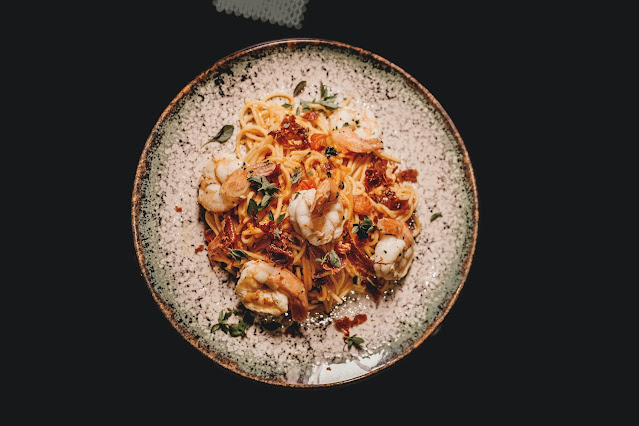Can Dogs Eat Shrimp And Scallops?
If you're wondering if your dog can safely eat shrimp and scallops, the answer is yes. Just make sure you don't serve them raw or uncooked or add any seasonings to them. And, as with any new food, feeding your dog scallops is best done in moderation. While these shellfish are not toxic to dogs, it's best to avoid frying them because fried scallops contain excessive fat and can cause pancreatitis or digestive issues.
Luckily, there are many ways to avoid this potentially dangerous food for your dog. The ASPCA recommends feeding cooked shellfish to dogs. But even then, your dog should eat it in small quantities. And if you do manage to get your dog to eat them raw, make sure you always wash the scallops thoroughly before serving them. If your dog eats raw scallops, he may contract the Hepatitis A virus.
Can Dogs Be Allergic To Shellfish?
Shellfish allergies affect dogs in different ways. Those with a shellfish allergy should avoid eating any shellfish, including shrimp and scallops, until they're tested. These seafood can cause hives, itching, and swelling of the lips and tongue. In some dogs, it can even cause a life-threatening reaction known as anaphylaxis. In such a case, the best course of action is to call 911 and administer an EpiPen.
While shellfish allergy symptoms typically develop after a few exposures, dogs with a seafood allergies should be cautious when eating seafood. Food allergens should be declared on the label, but not eaten if you're dog is intolerant to it. If you suspect your dog has a shellfish allergy, it's important to notify the vet.
Many people don't think about allergies when feeding shellfish to their dog but some people do. Many dogs can tolerate eating mollusks like scallops and not have the same tolerance for shrimp. This is because shrimp allergies are mostly adult based, and most adult dogs develop them later on in life. Only about one percent of dogs are allergic to shellfish. Fortunately, it's usually easy to avoid shellfish as long as you're aware of the risks.
Can You Feed Dogs Scallops And Shrimp Every Day?
While seafood like scallops and shrimp are delicious, you should not feed them to your dog on a daily basis. While they are healthy for humans, they can cause major health problems if you do. To ensure that your dog is not experiencing serious side effects, you should always cook the seafood well. Scallops should be boiled in moderate quantities. Scallops are also expensive and should not be fed to dogs in large quantities.
In addition to being high in protein, shrimp and scallops are also low in fat. The amount of protein contained in these fish and seafood is comparable to that of red meat. These fish also contain high amounts of essential minerals and vitamins. Among these, potassium helps prevent kidney stones, supports the immune system, and transmits nerve signals. They are also rich in phosphorus and magnesium, which are important for healthy bones and teeth. These fish contain large amounts of protein that help maintain healthy muscles.
Even though your dog can't eat raw scallops, it can still benefit from their high protein and high-potassium content. Scallops are low-calorie, and you can give your pet some once in a while. If you cook them properly, you can provide your dog with healthy food that won't harm their digestion or overall health. And remember to check with your veterinarian before introducing new foods into your dog's diet, including seafood.
Seafood Health Risks For Dogs
Scallops and shrimp contain several health risks for your dog. Raw scallops and shrimp can contain dozens of parasites, bacteria, and other potentially harmful organisms. Although they're low in calories, fat, and carbohydrates, they do contain high levels of cholesterol. Too many of these foods can lead to unhealthy cholesterol levels in your dog. To avoid this problem, only feed your dog raw shrimp and scallops occasionally.
While raw scallops and shrimp are harmful to your dog, cooked versions are perfectly safe. These meaty seafood contain protein and magnesium, which your dog needs for healthy muscles. Magnesium is needed to absorb other vitamins and minerals, and potassium helps maintain general health and nerve function. If your dog eats a few cooked scallops each week, it's unlikely they'll develop pancreatitis.
If your dog eats a small portion of scallops, check with a vet to make sure they're not allergic to them. If your dog has ever been allergic to shrimp or scallops, make sure to notify your veterinarian immediately. If your dog does get sick, you should not continue feeding him large portions of the dish. However, if you do decide to serve scallops, make sure you don't serve them fried. The fat content in scallops is high and could cause pancreatitis.
Another important factor in preventing pancreatitis in dogs is avoiding fried scallops. Fried scallops contain high levels of fat and should be avoided at all costs. Fried scallops can irritate your dog's digestive system and cause pancreatitis. Additionally, fried foods contain other flavorings that are bad for your dog. Butter is also a dairy product, and dogs have a poor ability to digest it.
References:
www.wellnessdogfoodblog.com/can-dogs-eat-scallops-are-they-safe/
https://globalactionnews.blogspot.com/2022/04/is-seafood-ok-for-dogs-to-eat.html

Comments
Post a Comment